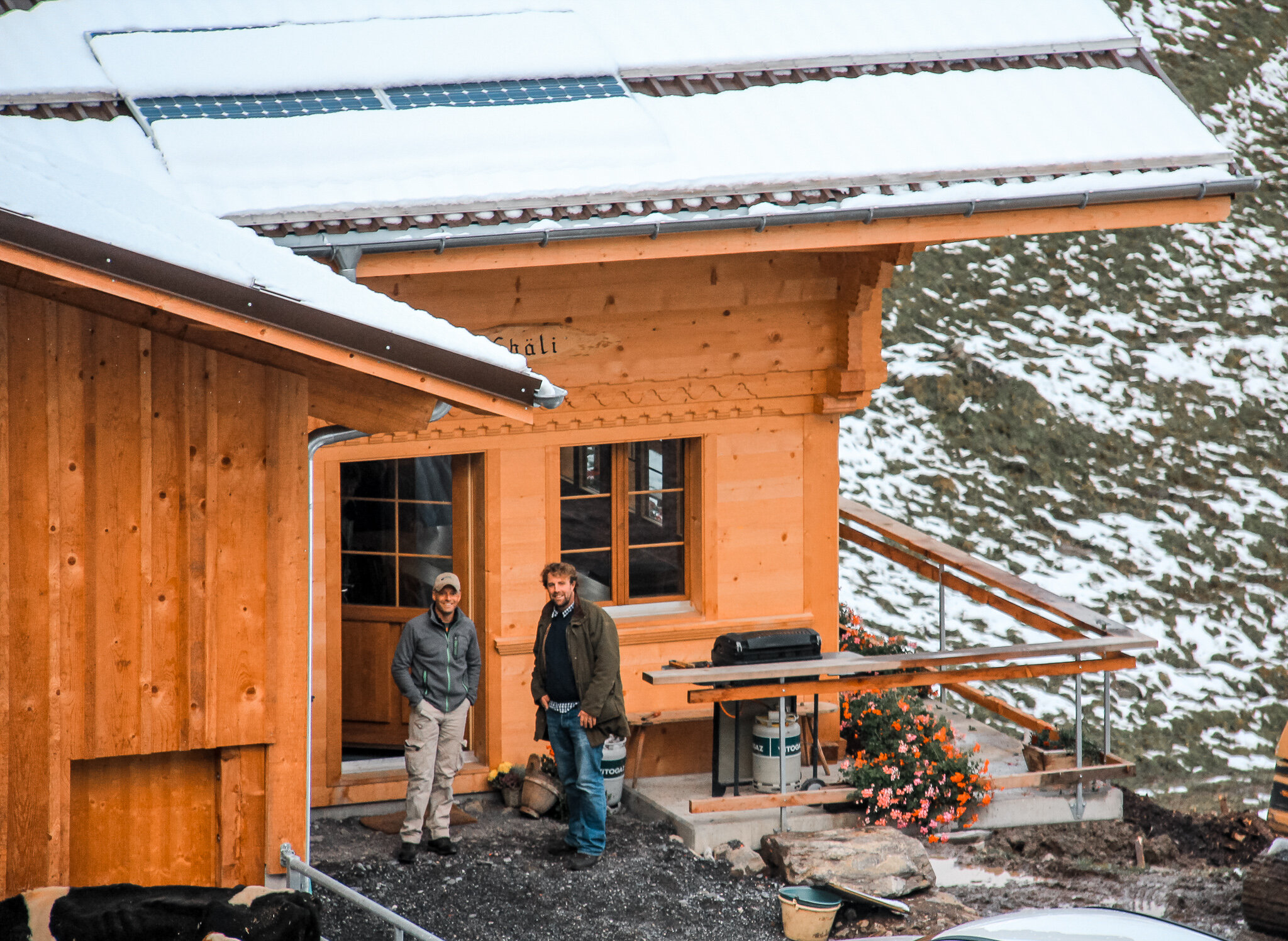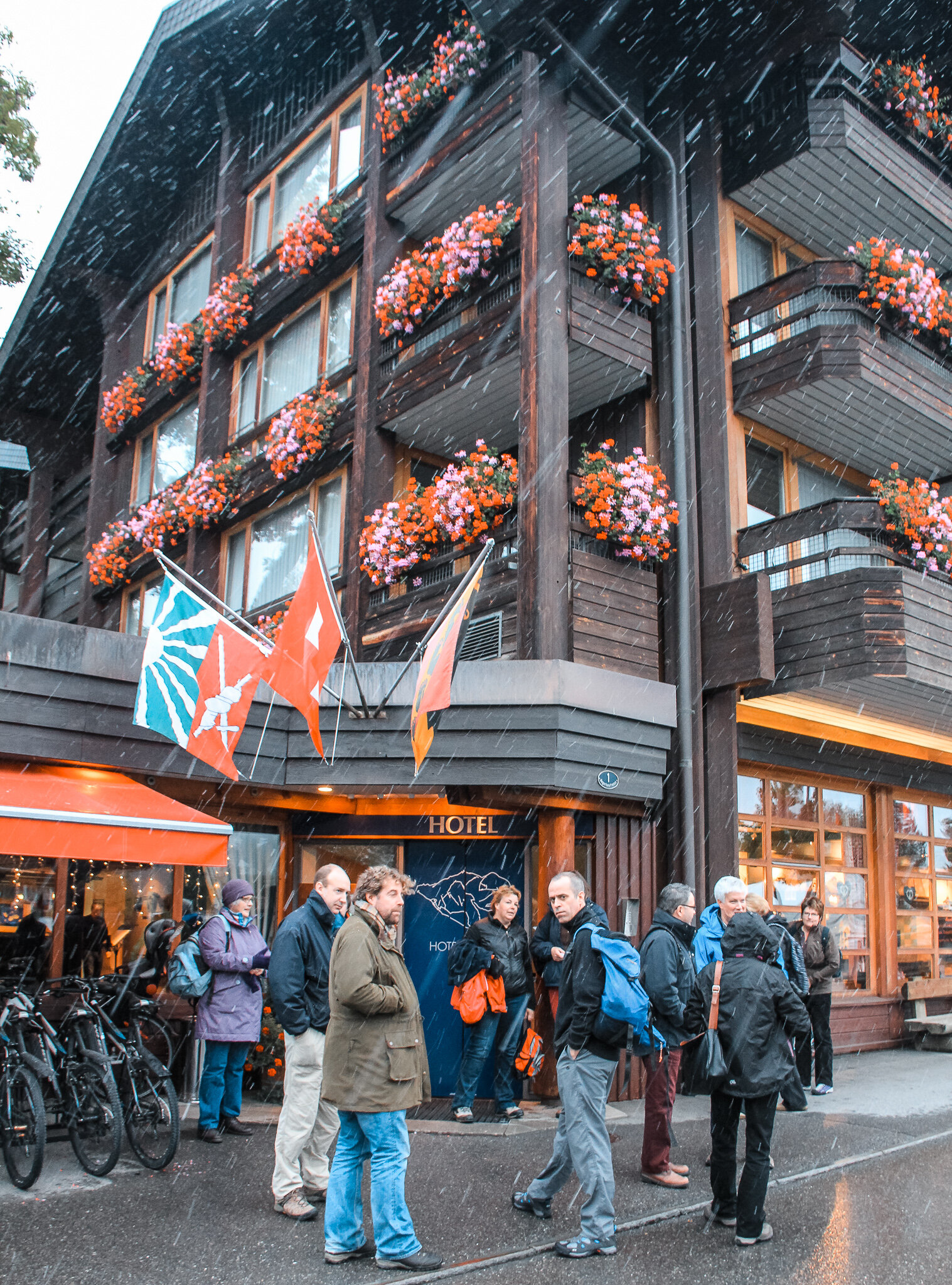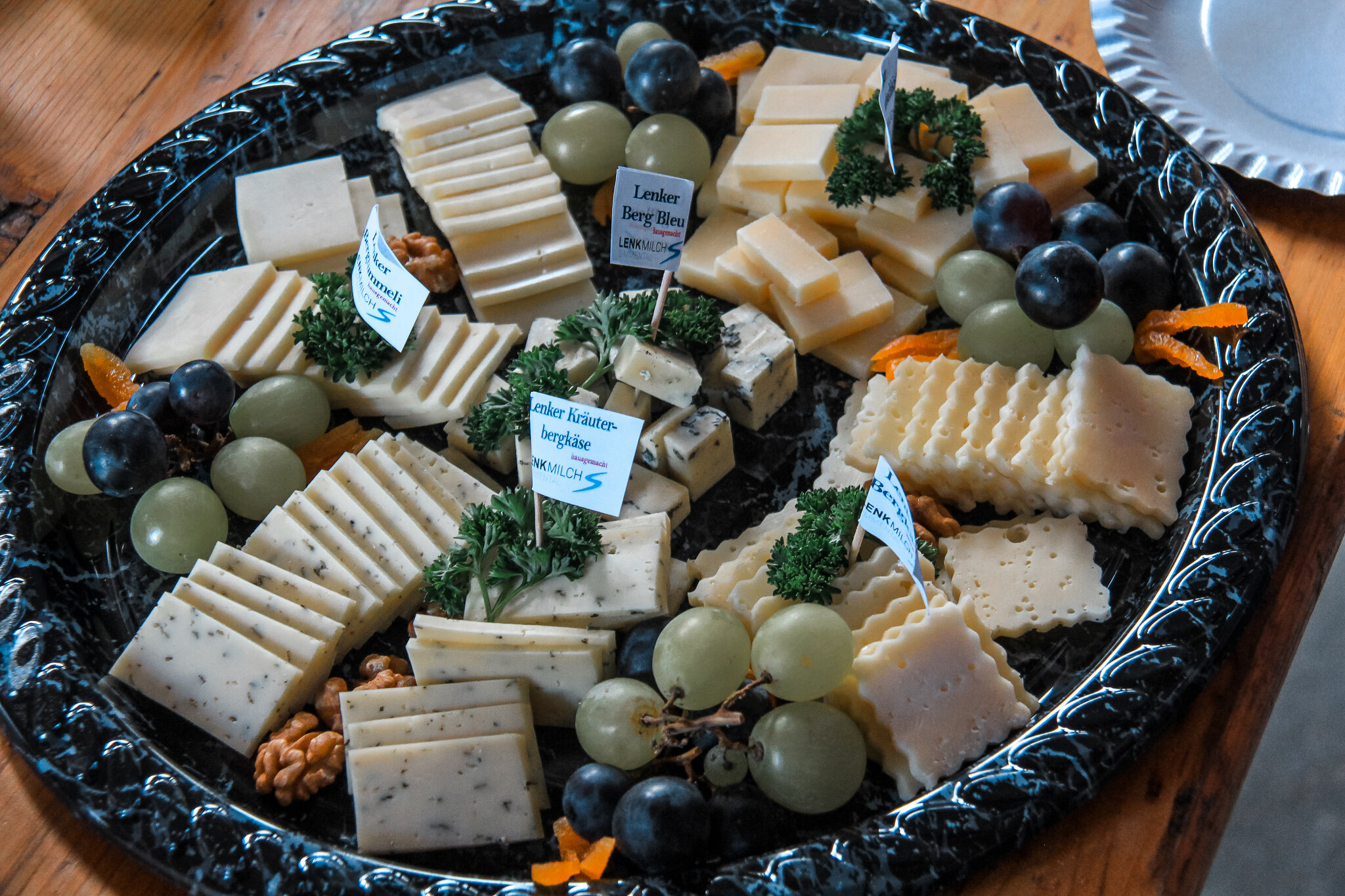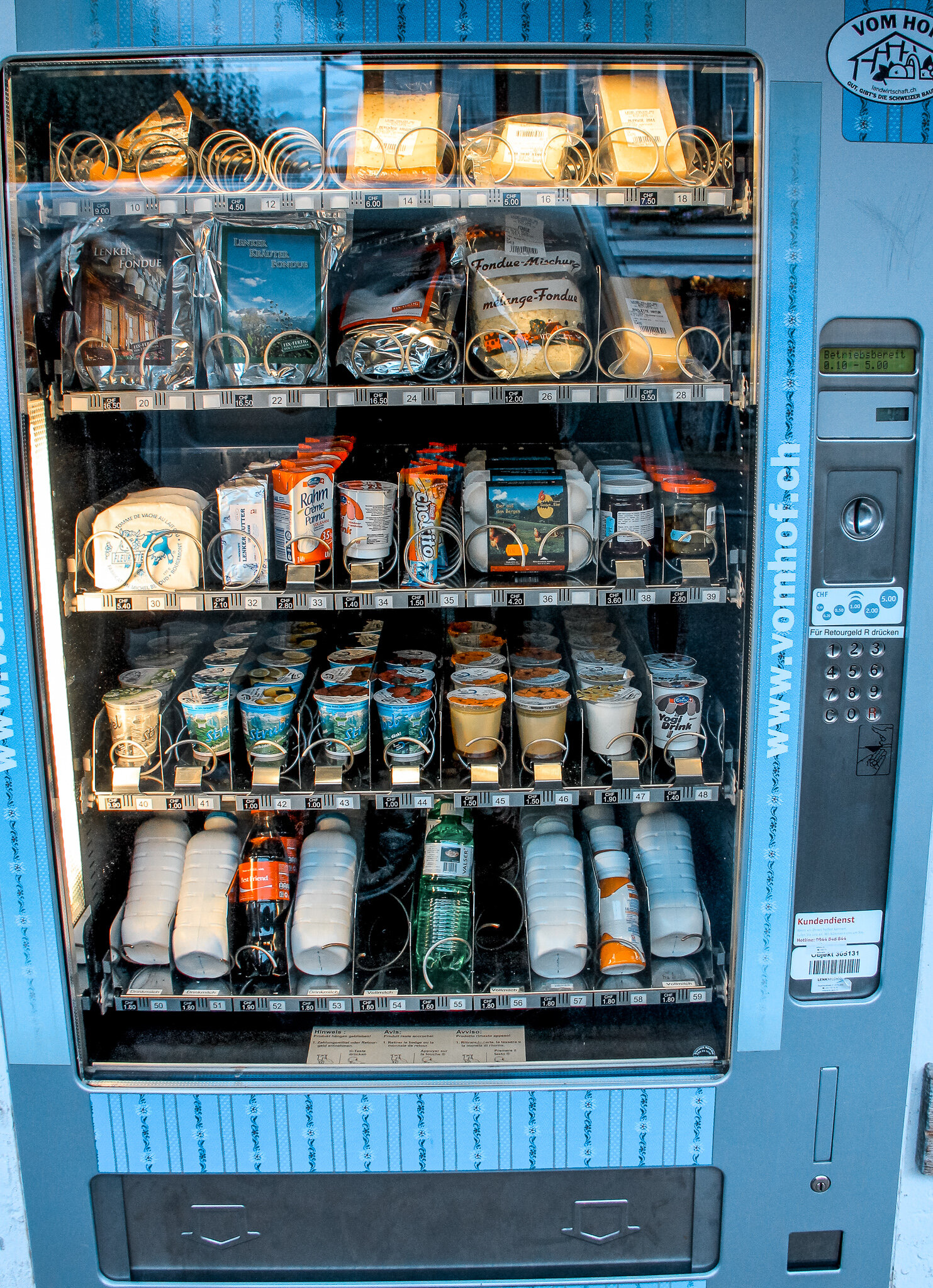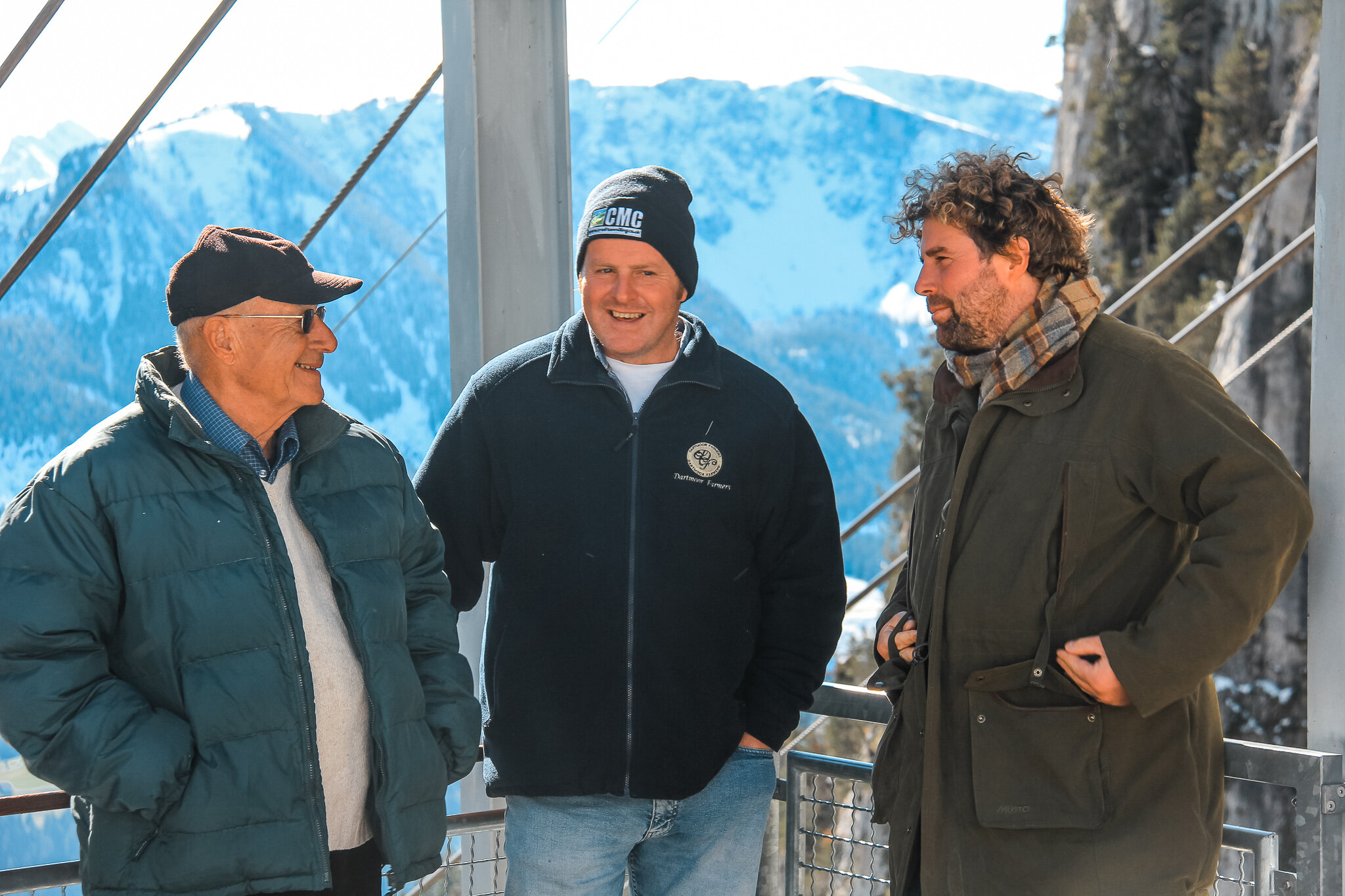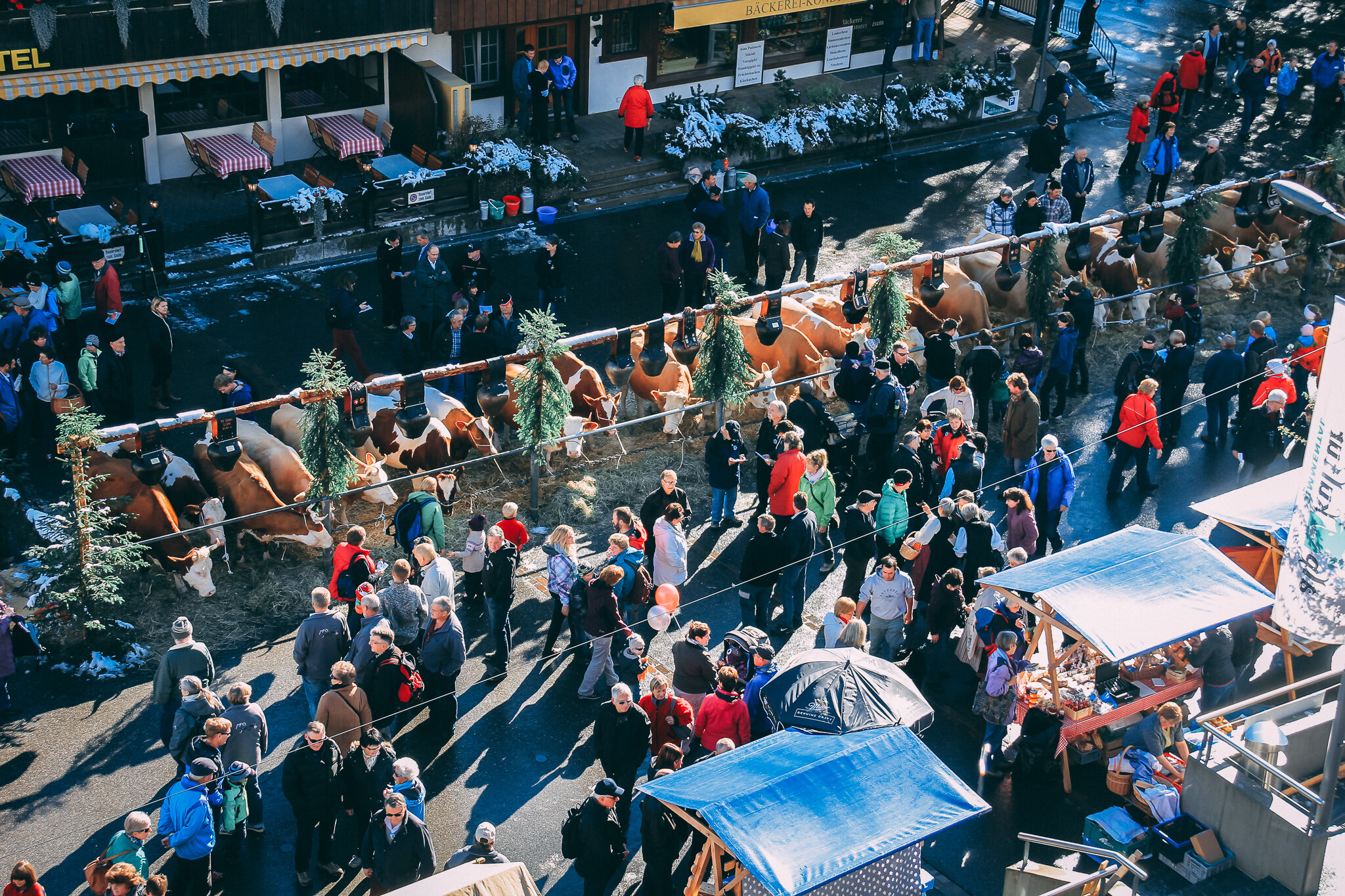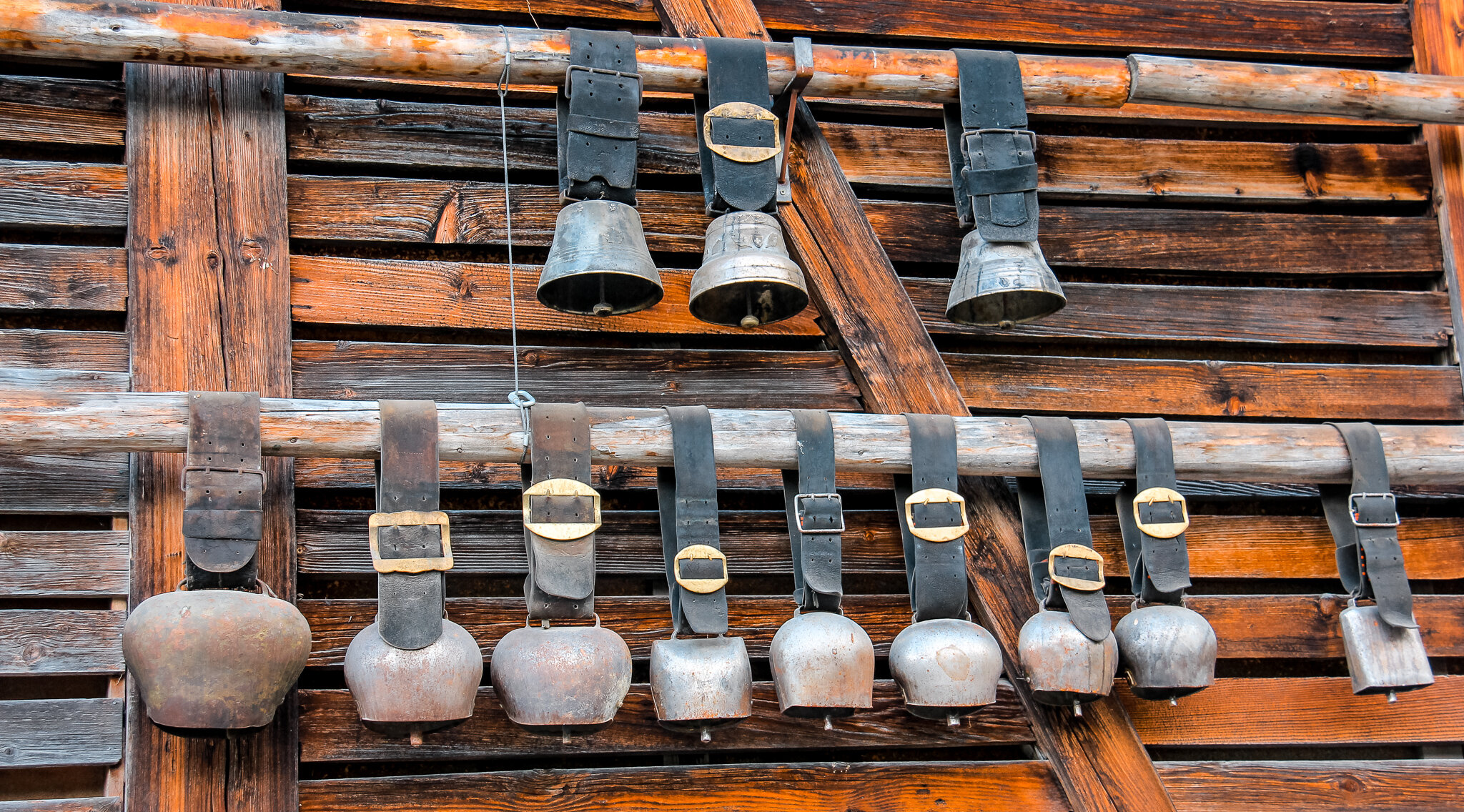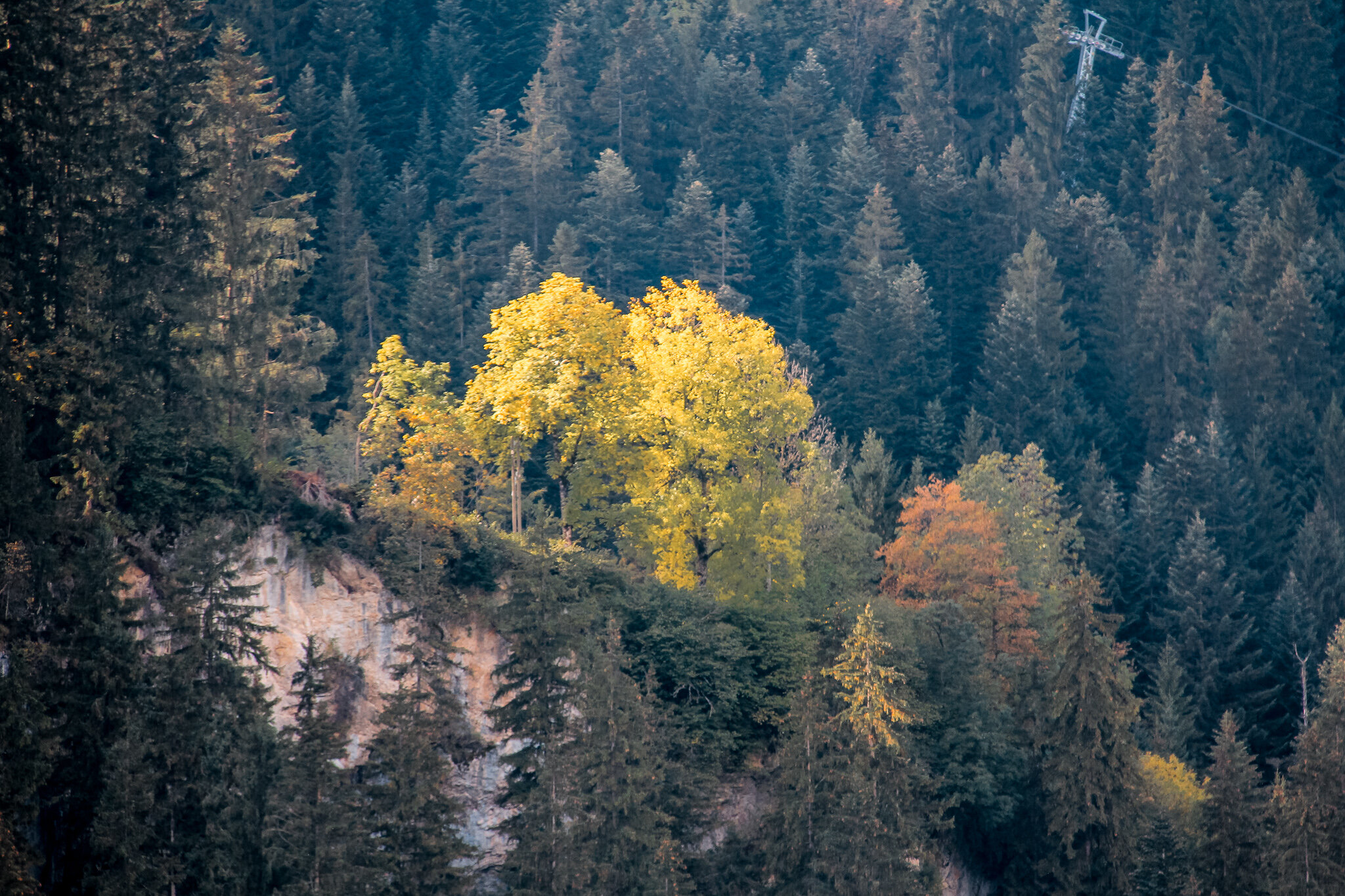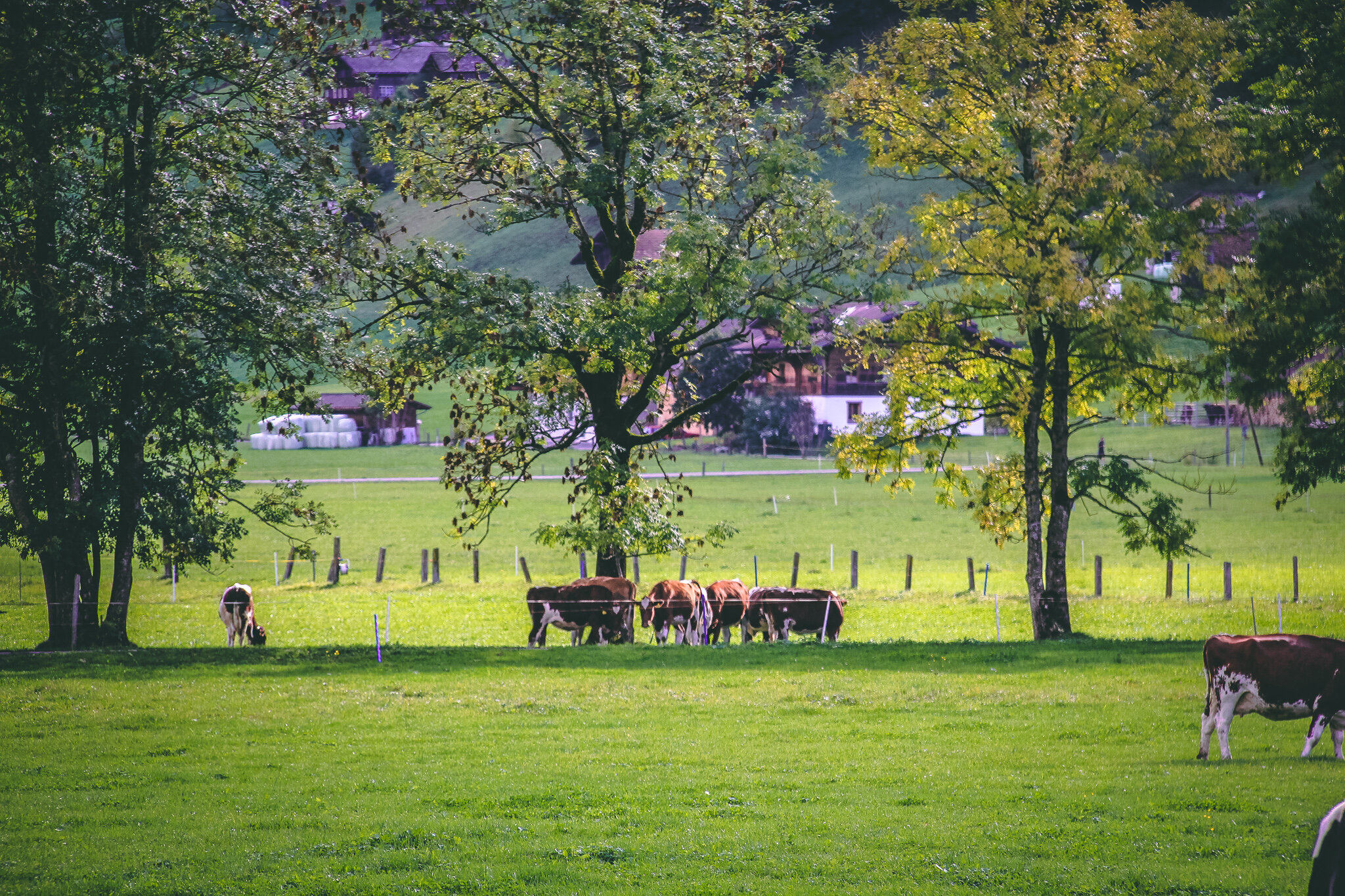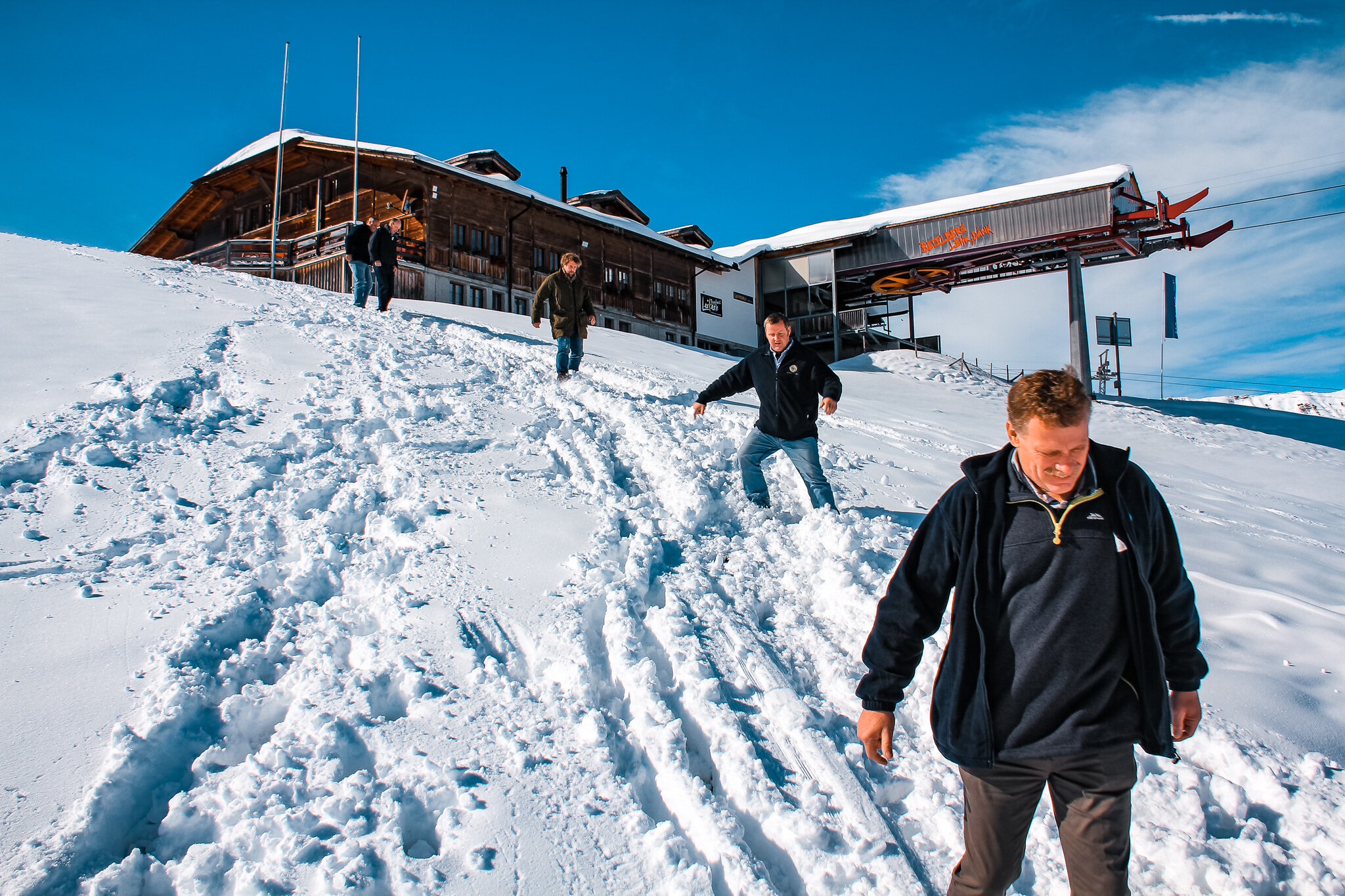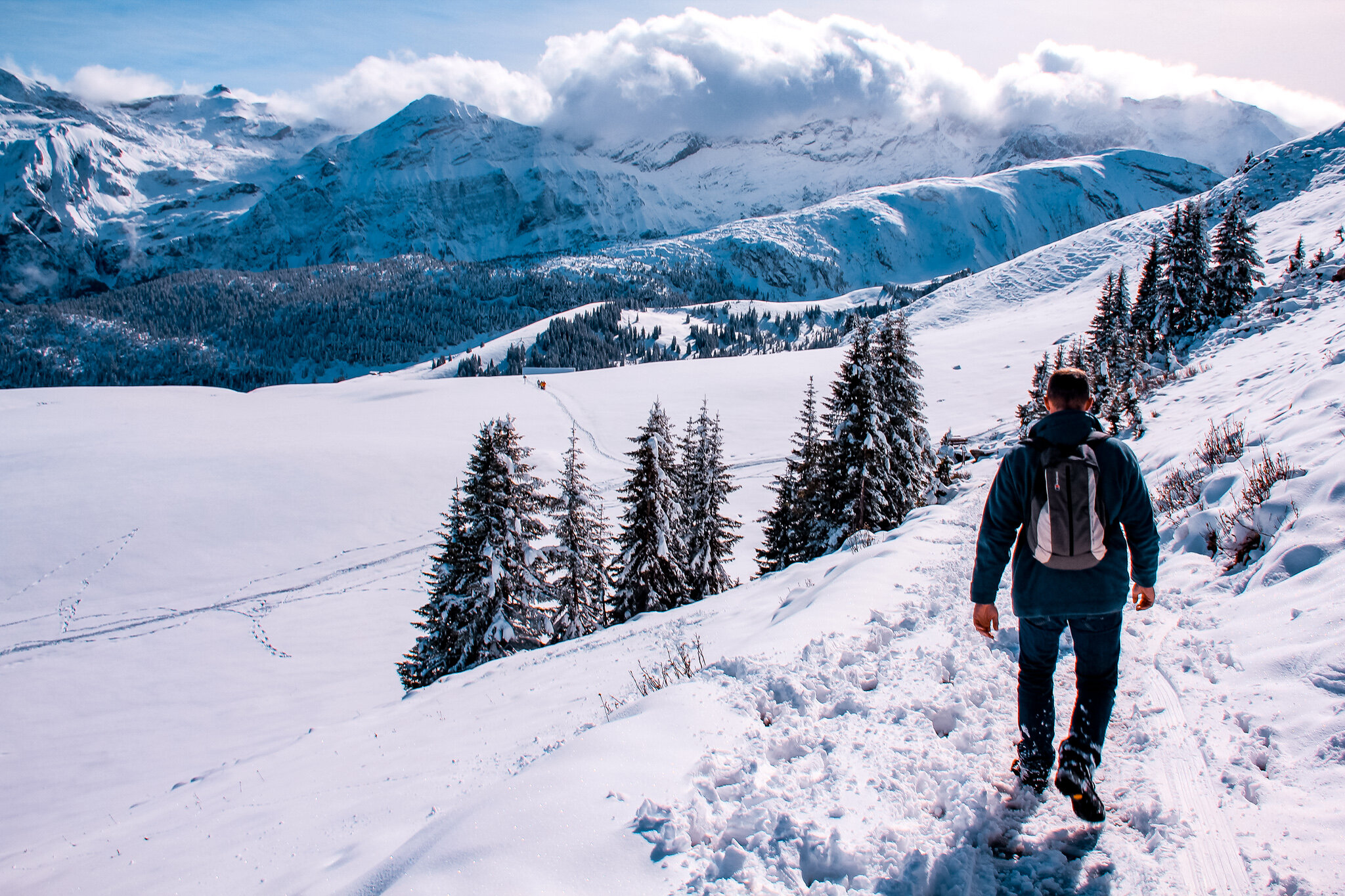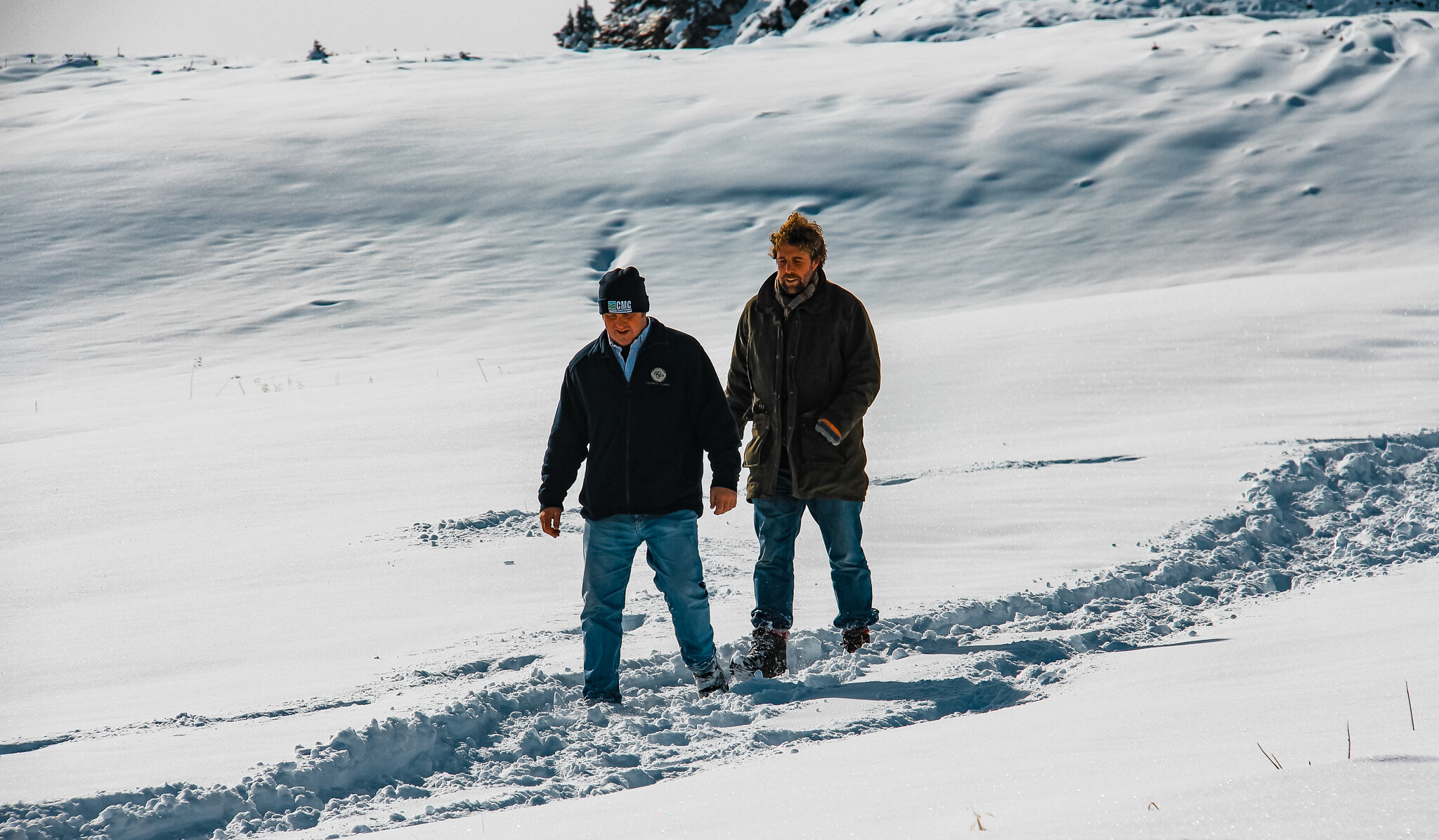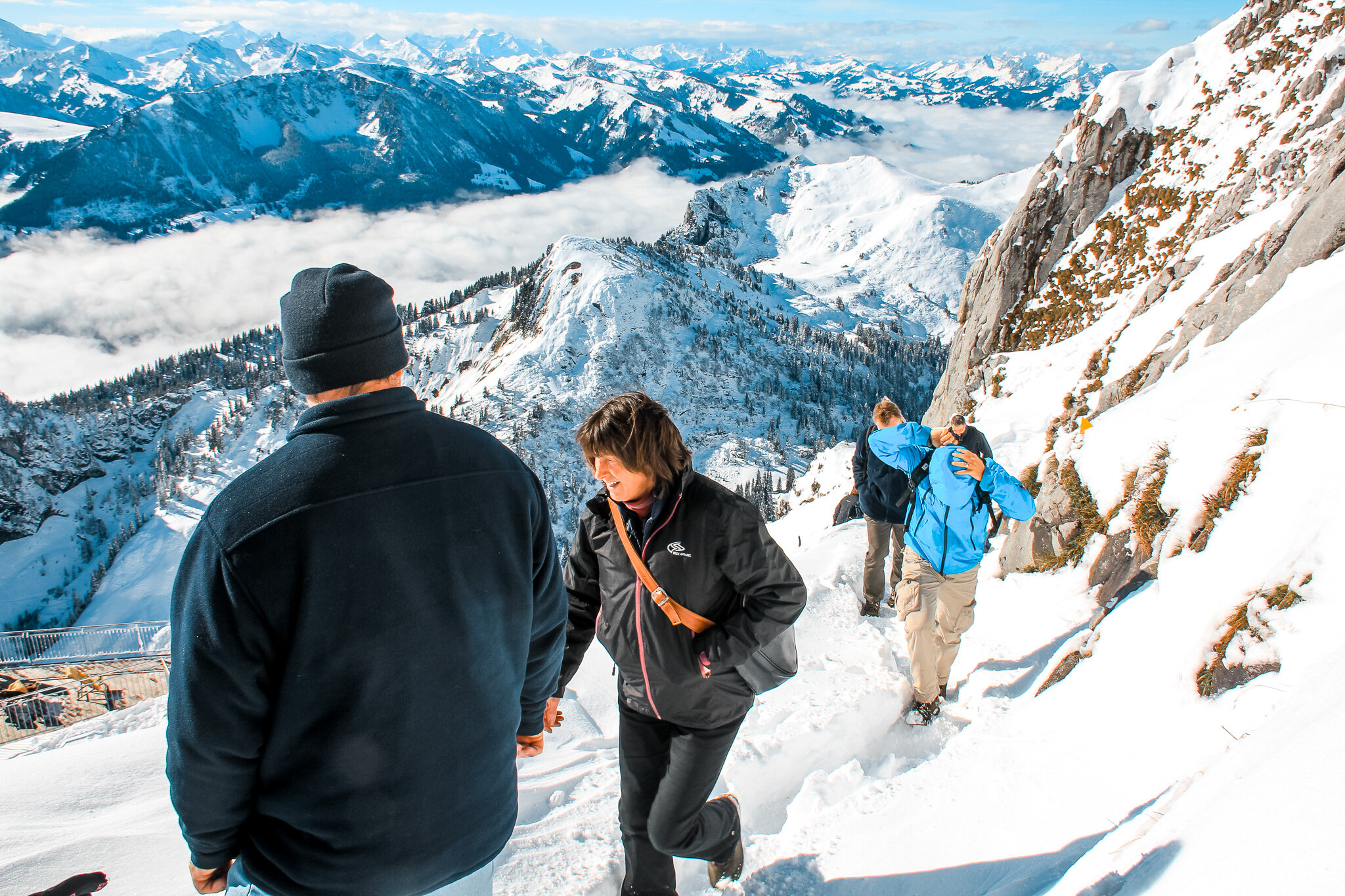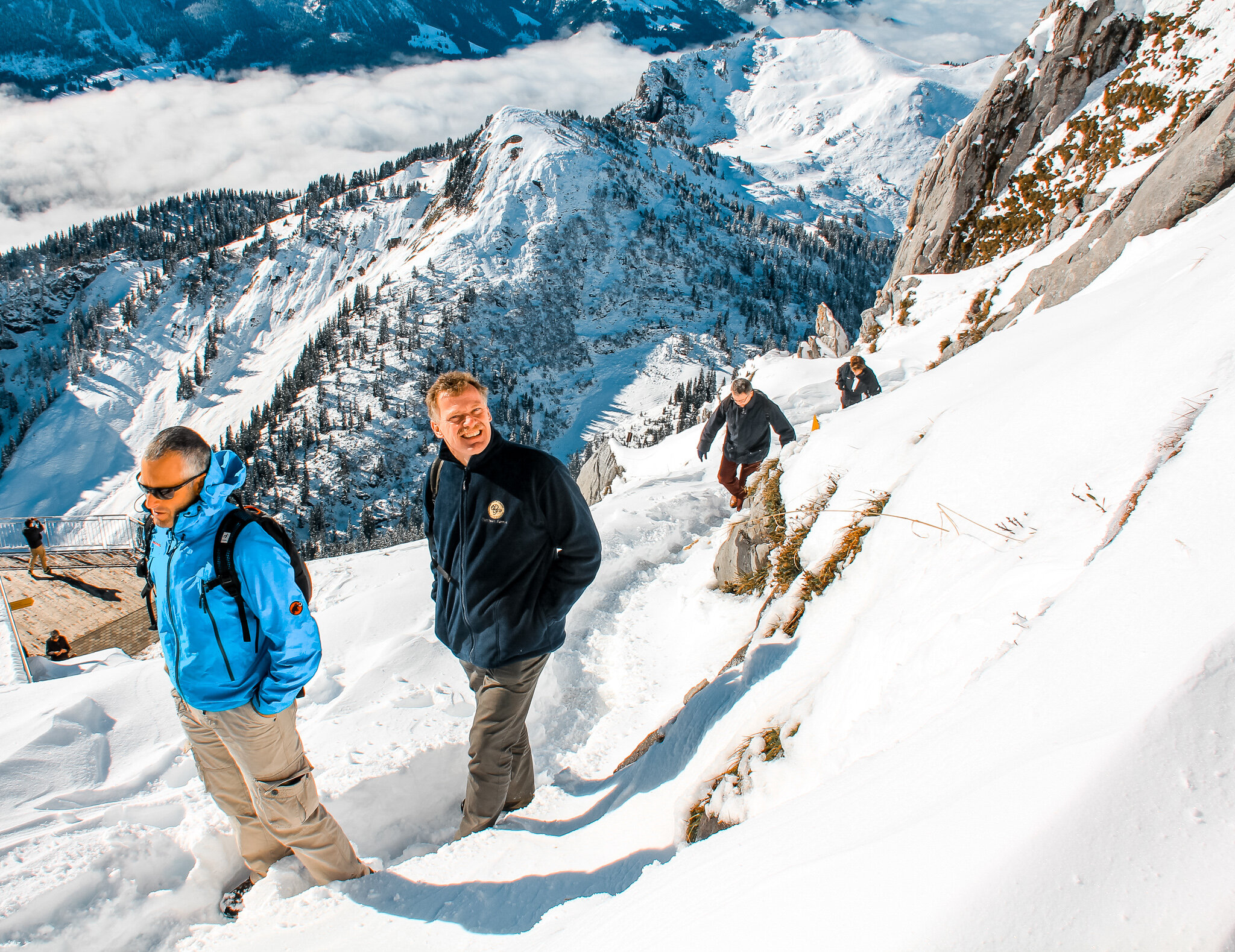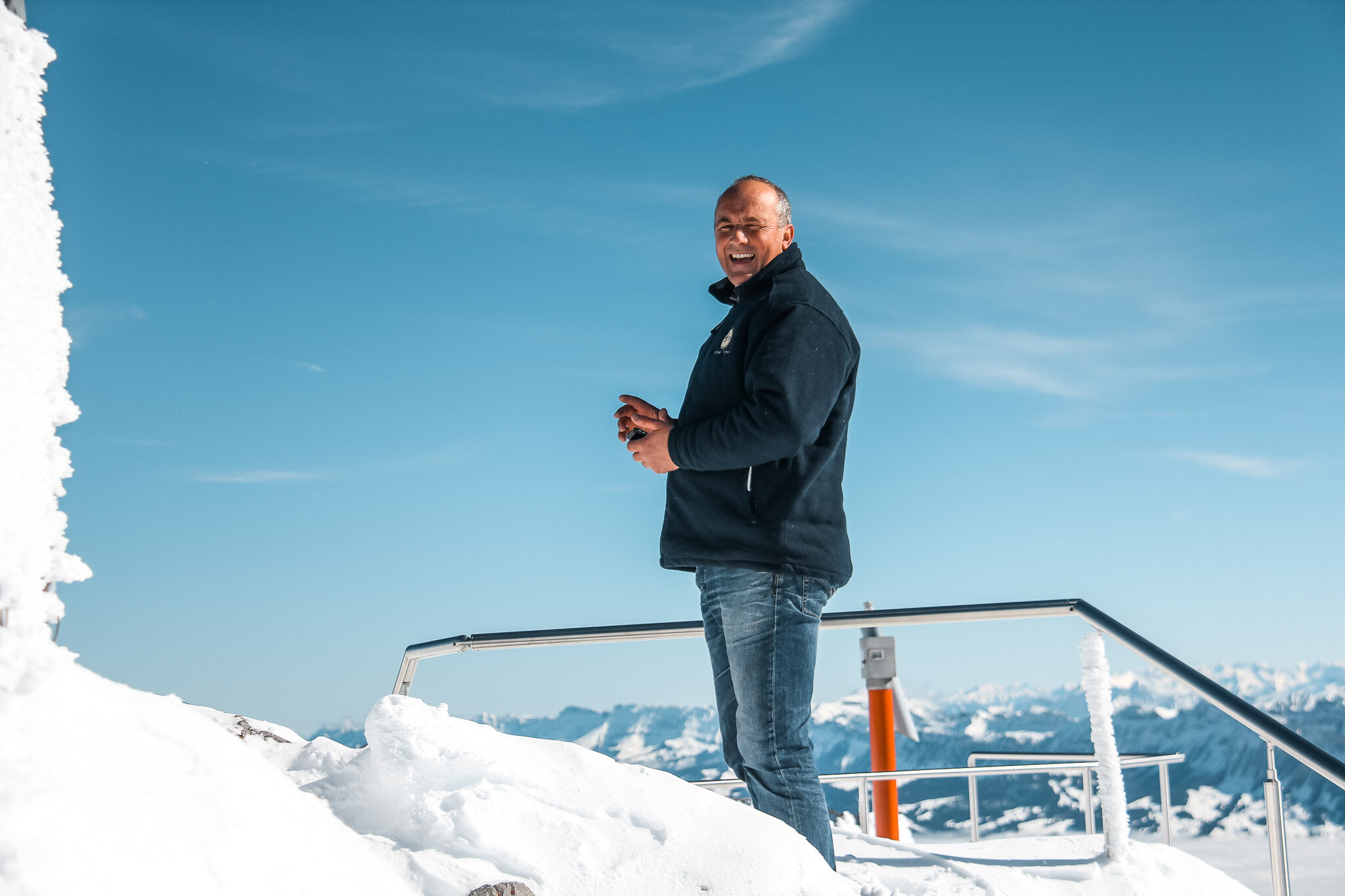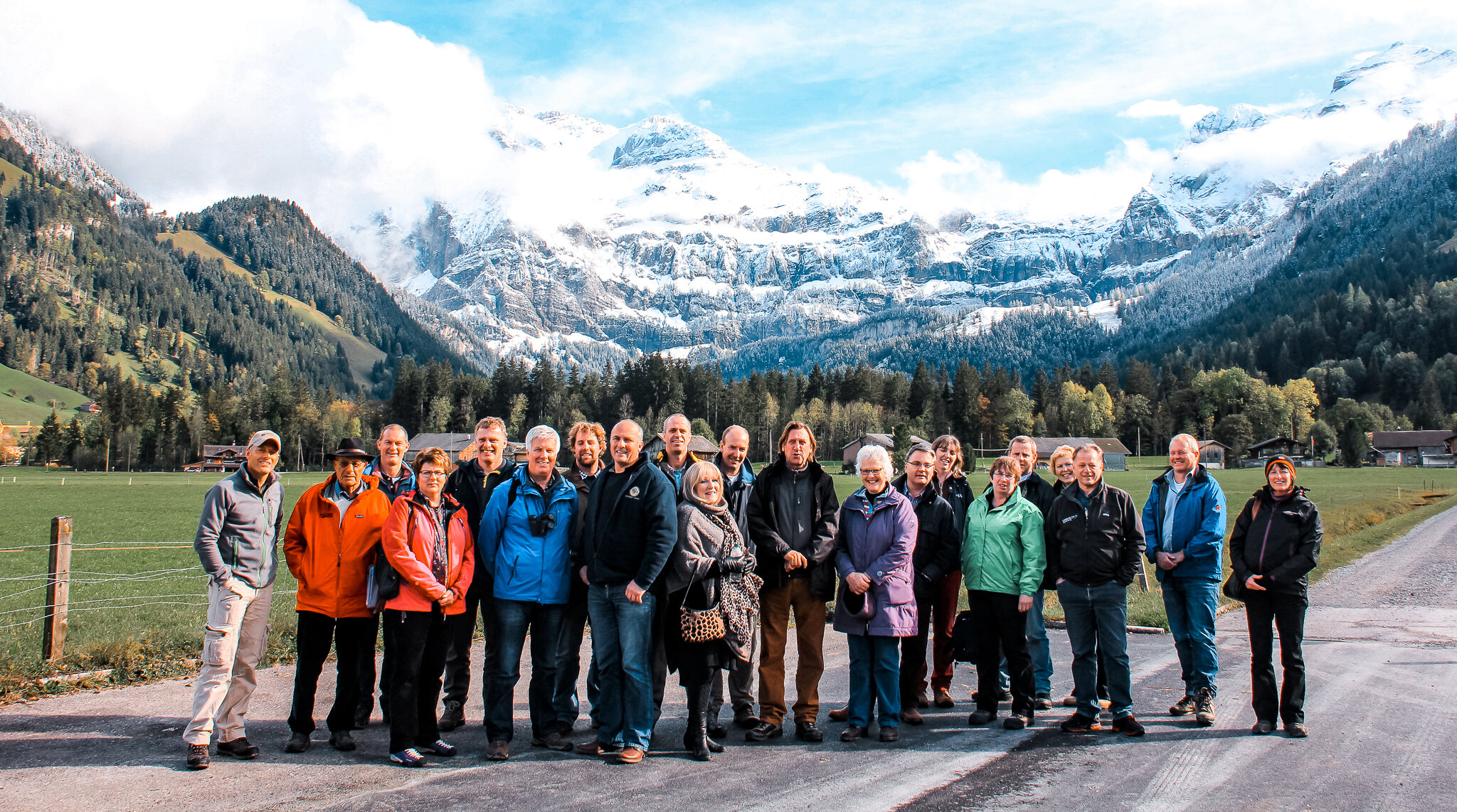Travel - Visiting Switzerland With Dartmoor Farmers
West Country hill farmers are used to high places, but take three Dartmoor agrarians half way up a Swiss mountain and you might well see them silenced in awe - not only because of the stunning scenery, but because of their astonishment when observing the achievements of their alpine counterparts.
A few years ago I witnessed such an event 6000 feet above sea level on the snow covered slopes of the beautiful Simmental Valley. The three well known Dartmoor farmers - Colin Abel, Mathew Cole and Ed Williams - weren’t silent for long, but they were impressed by the remarkable things farmer Ueli Tritten and his wife Hedi had achieved amid the alpine crags.
This is the article I wrote for the Western Morning News having been invited along by the Dartmoor group to visit the Simmental area of Switzerland where they were on a sort of twinning mission…
The Crowning of the Princess of Lenk
We’d met the Trittens at their classic Swiss chalet winter-farm, down on the floor of the valley, then undertaken a slightly terrifying ride in a four-wheel drive up a dirt and ice track to what’s known as a middle station. High above that, the family has its summer pasture farm just under the peaks of the mountains - but it was at the middle station that we sat down with Ueli who had recently refurbished the farmstead, turning it into a single shelter for both cows and family.
The big timber building looked impressive enough on the outside, but when we entered its gleaming portals we discovered the Trittens had also built an impressive subterranean cheese-making plant down in the basement.
From this shrine of isolationist agricultural activity, the family produce gold-medal cheeses that are regarded as being among the best in all of Switzerland.
We talked over a beer in the amazing new family kitchen surrounded by windows revealing some of the best scenery in the Alps and heard how, collectively, the Dartmoor men were responsible for farming thousands of cattle and sheep. Yet, despite being successful farmers, everyone knows that upland cattle and sheep rearing in the UK is tough, to say the least.
The Trittens keep a meagre 40 milking cows, yet somehow they make a good living. Try puling that business miracle off on a British farm... Okay, so there are differences between non EU Switzerland and its generous agricultural grant system and our own - but it was the quest to solve this seemingly unanswerable riddle that took a group of Dartmoor farmers and other movers and shakers to Switzerland last weekend.
Basically it’s the latest part of a ten year long history which has now resulted in an accord being signed that should see an official twinning of the Dartmoor and Simmental areas in the near future.
What originally interested various Dartmoor locals, like farmer Andy Bradford who organised the recent trip, about the Swiss was the fact that the Simmental area began focussing on a marriage between tourism and food production long before it was a twinkle in any British marketing guru’s eye. In the high remote alpine valleys tourism and agriculture has been treated as a single element within the region’s economy for over 40 years.
Andy Bradford enjoying the Alpine air high above Lenk
They’ve even invented a word for it... Alpculture is a brand that has been devised to promote and sell local produce as well as educate visitors about alpine life.
At the very heart of the phrase lies the single truth that says: this place would not look anywhere near as beautiful - and you wouldn't even be able to ski the high slopes - if local farmers didn’t graze the landscape with their cattle.
The Swiss understand this equation. As they trundle up from the cities into the mountains to enjoy their skiing, hiking, mountain biking or whatever - they comprehend the importance of supporting the people who live there all the time.
They don’t only understand the consequences of buying local produce - they want it. The most common question asked in the Lenk tourist office is: “Where can I buy the best local cheese?”
So keen are Swiss visitors to purchase the products of the mountains, there are street-side vending machines selling local cheese and meat which cater for those who need items when the shops are shut.
Can you imagine village streets on Dartmoor (or, for that matter, Exmoor, the Quantocks, Bodmin Moor or West Penwith) playing host to refrigerated vending machines selling local produce?
Can you imagine the average British tourist or day-visitor thinking: “This scenery is fabulous. And it’s all here thanks to the traditional farmers and their beasts. I simply must buy some delicious local lamb or beef to take home!”
No. Neither can I. Not yet, anyway. But this joined-up thinking - this concept that a landscape can be rich in history and tradition and look the way it does because of the way humans have used it for centuries - is one that we ought to be promoting in the West Country.
When Dartmoor farmers like Andy Bradford - along with various hoteliers, tourism bosses and other influential movers and shakers from the moor - discovered the Swiss were making this all-important connection work, they travelled to the Simmental eight years ago to find out more.
Out of that trip an organisation called Dartmoor Farmer’s Ltd was born - and now they, along with members of the umbrella group called the Dartmoor Partnership - have been back for what could be described as a refresher tour...
Dartmoor farmers with Swiss friends enjoying a walk in the alpine countryside
It was an exhausting four day visit in which we did everything from meet cheese-makers to dried herb processors (another innovative way Swiss farmers can make a few bob on the side) and Andy, who runs Brimpts Farm in central Dartmoor, told me: “This tour has reenergised our thoughts and stimulated the idea that we must take things forward again. Many things came out of the original trip, but this has been about reminding us what they have achieved in the Simmental. How the marketing, the brand, and all the farming and tourism elements are so well joined-up and organised.
“The heritage we have on Dartmoor is beyond belief - world class stuff - we have farming going back 4000 years,” he went on. “I don’t think we quite understand how much we have to offer - and maybe we find it difficult to market it because we are farmers. But now it’s time we reestablished our link with the general public and sold our meat - the last thing we want is to be propped up by subsidies.
“If we can explain the value in what we do - the landscape delivery, the aggro-tourism, all those sort of things - that’s what we need to do. In Lenk (the small capital of the Simmental region) they've done all this very well and they have given us a road-map to show us how we can achieve these sort of things.”
Colin Abel, chairman of the Dartmoor Farmer’s Association and a fifth generation beef and sheep farmer from Peter Tavy, agreed with Andy’s words: “This trip is about doing more collaborative work between different parties - promoting the farmers and their different products,” he told me. “It’s mainly about getting the tourism people to understand what we can deliver as farmers for them - and them helping us with our products so that we can keep farming in the hills. And also letting the people who come to Dartmoor taste the experience.
Simmentallers gathering for the Crowning of the Princess of Lenk
“We came here eight years ago to see what they were doing here - and that inspired us to get Dartmoor Farmers going. Now we’ve come back and they’ve moved on. The Swiss have developed new products and new relationships with their tourism board. They have their issues, but they are a long way forward compared to us,” said Colin.
“The environment here is totally amazing, but we’ve got things which are unique and which people come to see - and it is about selling that story and pushing it a bit harder than we do now,” he concluded. “I know some farmers are sceptical and slow to come on board - but that’s farmers in their nature isn’t it? But surely we should help promote each other - there is an opportunity for a brand in the South West and we should be all behind it.”
Among the party of 15 who visited the Simmental was Tom Stratton, the Duchy of Cornwall’s land agent for Dartmoor, who told me: “Whilst the two areas are different in nature there are several similarities. Specifically, the Swiss need to promote tourism and its relationship with the landscape and so do we.
“They’ve got a unique environment, as we have on Dartmoor - they have a range of unique products as we do - and they have a real enthusiasm when it comes to promoting them,” said Mr Stratton. “It has been interesting to look at the ways they’re doing that and thinking about how we can do the same on Dartmoor.
Dartmoor folk visiting a typical farm in the Simmental
“The Duchy is a large landowner with 21 farms on Dartmoor and we want to support the businesses and tenants in any way we can. We’re very keen to ensure that the businesses on the moor remain viable both in farming and tourism and we see this as a really good way of bringing them altogether - and sharing ideas with the people in the Simmental.”
During the trip in which delegates toured various valleys and mountain peaks, as well as farms, cheese-making factories and tourism outlets, Albert Kruker - director of Lenk-Simmental Tourism - was constantly on hand to advise and explain.
He told me: “It is vital that there is an understanding between the people in the tourism sector and the farming sector that each profits from the other. This understanding is well established here.
“And the guests who come here understand that if they buy local goods they are helping to sustain the area. Most Swiss people understand this and they are looking for regional goods. They come in to our office all the time and ask: ‘Where can I buy the cheese or the meat directly from the farmer?’”
Mr Kruker continued: “Four years ago we registered Alpculture as a trademark for the Simmental area. But we didn’t do anything new - we just collected all the traditional things we were doing anyway in this area that were to do with alpine-living - and tried to put it in a form where guests could experience it.
“It’s about the alpine lifestyle. But it’s not just the traditional things - it is also about modern methods of producing cheese and so on - as well as the problems people have in living here.
“I tell people: ‘It’s not so easy to live here - it’s not easy to earn the money here - so please buy our goods and the products from our farmers.’ This branding, Alpcutlure, is working very well - we can see it in operation. People, when they first hear it, ask - what is that? But everyone can understand the two words that we’ve put together.
“Alongside Dartmoor, we know we experience the same kind of problems. It’s the same starting point. We already have some ideas from our recent visit to Dartmoor when we found you are thinking about the same problems, but you have different solutions.
“Maybe we can learn from you and you can learn from us.”
The mutual learning is already occurring - although it might be said that the Westcountry uplands have more to benefit from adopting some kind of “Alpculture” style or brand than anything we can take to the Swiss.
As farmer Mat Cole emailed upon our return: “I had a very insightful time and feel re-energised for the Dartmoor challenges ahead!”
If that is the kind of positive thinking this simple and unique twinning operation can have between two upland areas, then perhaps the Dartmoor farmers climbing Ueli Tritten’s mountain were mere trailblazers for what should become a regular two-way interchange of ideas.
The late Hans Forrer, without whom this trip and the bond with Dartmoor would not have happened







